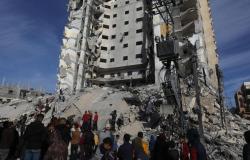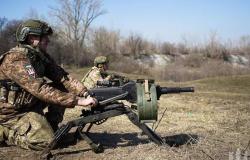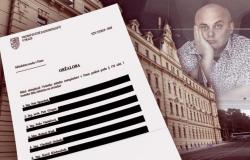Communist propaganda claimed for many years that only fearless communists fought against Nazism. Until it seemed that no one else was involved in the resistance. Fortunately, this changed after 1989 with the advent of democracy.
How it really was
Prague
17:39 March 31, 2024
Share on Facebook
Share on LinkedIn
Print
Copy the url address
Abbreviated address
Copy to clipboard
Close
The Ribbentrop-Molotov Pact, i.e. the non-aggression pact between Nazi Germany and Stalin (von Ribbentrop and Stalin after the conclusion of the Hitler-Stalin Pact in Moscow, 1939) | Source: ČTK
The first weeks of the war decimated what was left of Czechoslovakia, as well as other states. Then at the meeting of the Politburo, the supreme representative of the Soviet Union, Josef Vissarionovich Stalin, spoke and said:
Hear how it really was for Ivana Chmel Denčevová
“We must accept the German proposal and politely send back the Anglo-French mission. The first advantage we will gain will be the destruction of Poland. Up to the access roads to Warsaw, including the destruction of Ukrainian Galicia.”
“Germany offers us complete freedom of action in the Baltic countries. He has no objection to the return of Bessarabia to the Soviet Union. He is ready to leave to us the sphere of influence of Romania, Bulgaria and Hungary. The question related to Yugoslavia remains open.”
Hitler, our friend
The Ribbentrop-Molotov Pact – a non-aggression pact between Nazi Germany and the USSR, named after the then foreign ministers – was signed on August 23, 1939.
“It was about the division of Europe between the Soviet Union and the German Empire. Hitler already announced his idea of conquering the East in his book Mein Kampf and directed all his energy towards it. The Soviet Union accepted this Nazi offer,” assesses historian Vojtěch Kyncl in the program Jak to bylo doopravdy.
It works: historian Vojtěch Kyncl
They play: Jan Vlasák, Kajetán Písařovic, Igor Bareš, Ondřej Brousek and Michal Zelenka
Prepared by: Ivana Chmel Denčevová
Directed by: Michal Bures
The USSR was waiting for a “favorable entry” into the war. Power ambitions played a role in him, even though the Russians had big problems at home – a series of monster trials took place there, many people were sent to the gulags, the generals were liquidated and there was great misery everywhere.
Czechoslovakia, which had been occupied by the Nazis since March 1939, did not even exist at that time. A few months before, the activities of the Communist Party were banned, so the entire Communist elite left for Moscow emigration: Klement Gottwald, Rudolf Slánský, Vlado Clementis or Václav Nosek.
Some communists, such as Antonín Zápotocký, were in Nazi concentration camps, and rank-and-file communists who tried to survive illegally joined the anti-Nazi resistance.
Our communists found themselves in a special situation: “The Comintern, i.e. the governing body of the communist parties, issued an instruction from Moscow that no action would be taken against Nazi Germany. The current state needs to be tolerated and the occupation accepted as a given state,” describes the historian.
Despite Moscow
Nevertheless, it was the rank-and-file communists who behaved differently, which the historian evaluates as “an exceptional situation in their history, because it was a complete defiance of the orders of the Moscow leadership.”

Steppe and frost. The documentary recalls the fate of Czech prisoners in Kazakh gulags
Read the article
“However, in their case there was no other way – otherwise they would have passively watched as their ranks were liquidated by the Gestapo and gradually transported to concentration camps. That’s why they actually had to resist,” he adds.
However, after the war, this history was no longer suitable for the Communists to “read”, so they almost erased it. “It was only after November 1989 that research and archives were opened. Today, we are able to assess the events of that time with a greater perspective,” says Kyncl.
A big flaw in the beauty is the more or less inaccessible Moscow archives, which remain closed almost 80 years after the end of the war.
When asked if the Communist Party joined the resistance, the historian answers: “It was only in 1941, again on the orders of Moscow.” It was then that the communists began to cooperate with the domestic resistance. Rank-and-file communists, together with other Czechoslovaks, stood up to the occupiers right from the beginning of the occupation – but the communists had no other option.“
Listen to more in the audio recording of the show How it was.
Ivana Chmel Denčevová
Share on Facebook
Share on LinkedIn
Print
Copy the url address
Abbreviated address
Copy to clipboard
Close







